|
By Derrick Weston Luke 1:46-55 And Mary said, ‘My soul magnifies the Lord, and my spirit rejoices in God my Savior, for he has looked with favor on the lowliness of his servant. Surely, from now on all generations will call me blessed; for the Mighty One has done great things for me, and holy is his name. His mercy is for those who fear him from generation to generation. He has shown strength with his arm; he has scattered the proud in the thoughts of their hearts. He has brought down the powerful from their thrones, and lifted up the lowly; he has filled the hungry with good things, and sent the rich away empty. He has helped his servant Israel, in remembrance of his mercy, according to the promise he made to our ancestors, to Abraham and to his descendants for ever.’ One of the most striking books I have read about the Advent/Christmas narratives is Kelly Nikondeha’s The First Advent in Palestine: Reversals, Resistance, and the Ongoing Complexity of Hope. It’s a stunning book that asks the readers to put themselves into the shoes of Mary and Elizabeth in an almost cinematic fashion. Nikondeha draws deep into history as well as her own experience in the Holy Land to make the birth narrative of Jesus grounded and real in a way that some may find provocative. In the book, Mary’s song is highlighted as the act of resistance that it is. Mary didn’t fight, she sang… Following in the footsteps of her ancestors, she composed laments, victory songs, and the range of traditional choruses in between. Songs were her work of resistance, her response to the injustice she witnessed and likely suffered There is a stark reminder here: before we can build a new world, we have to do the work of imagining the world we want to see. The arts give us a place to express the dreams and desires for liberation that we so long for.
What would a magnificat for creation sound like? Perhaps we should sing of polluters being held to account and those who put profit over planet being made to feel shame. Perhaps we should sing of clean air and clean waters in black and brown communities that bear the undue weight of commercial waste. Perhaps we should sing of protected habitats for threatened species and a food system that works with nature instead of fighting it. Maybe what this moment requires of us is to be like Mary, casting a vision of what the world can be. For many of us, Mary’s song is the heart of Christmas. It is a song about a grand reversal that will happen in the world. It is a song about the world being turned on its head, where the mighty are humbled and those who have been at the mercy of oppressive forces will finally know freedom. As Kelley Nikondeha puts it “Mary sings out a new social order that upends the status quo as advent begins to turn tables on those who benefit from the injustice of empires and their economies”. Perhaps the task now falls to us to sing the world we want, the one where we are in harmonious rhythm with creation, into existence.
0 Comments
by Ashtyn Adams Psalm 126 (NRSV) A Harvest of Joy A Song of Ascents. 1 When the Lord restored the fortunes of Zion, we were like those who dream. 2 Then our mouth was filled with laughter and our tongue with shouts of joy; then it was said among the nations, “The Lord has done great things for them.” 3 The Lord has done great things for us, and we rejoiced. 4 Restore our fortunes, O Lord, like the watercourses in the Negeb. 5 May those who sow in tears reap with shouts of joy. 6 Those who go out weeping, bearing the seed for sowing, shall come home with shouts of joy, carrying their sheaves. There is such a rich spirituality within these six verses. We are brought into the psalm with a heightened immediacy to Israel’s past, “when the Lord restored the fortunes of Zion, we were like those who dream.” Some translations pick up on these “restored fortunes,” with greater specificity: “when the Lord turned again the captivity of Zion,” (KJV) or “when the Lord changed Zion’s circumstances for the better” (CEB). For the Israelites, fortune is freedom and liberation from slavery and Empire, not a greater consumption of material possessions. Indeed, they were like the dreamers, that is the prophets, the messengers of human oracles, the medium through which the deity reveals themselves. Dreams don’t simply give insight into the future, but they set the future in motion. From Joseph in Genesis to the Rev. Dr. Martin Luther King Jr., the ones who dream draw people into an awakened world marked by more life. There is a spirit of delight and excitement the Israelites recall during this time that one can only long for as this Christmas season approaches: mouths filled with laughter, tongues shouting with joy, people gathered telling stories about how God has made them new, and, as we will see, a healthy and fruitful Earth at the center of it. The psalmist pleas for God to restore these fortunes. Yet, this is no fanciful romanticism of the past, no “make Israel great again” message, nor is it a stagnant pessimism that “the best days are behind us.” As my supervisor Derrick Weston has poignantly said, the restoration that’s being dreamt of is going to have a direct representation in creation. The Sitz im Leben is suspected to be the Autumnal Festival or the Feast of Tabernacles as the heart of the psalm, 4b, rests on the description of the Negev. Every summer the Negev region was dried out, but every year, it is transformed into a fruitful grain-yielding area, providing a wondrous environment for life to flourish. The power Yahweh displayed on the national stage, freeing the Israelites from Egyptian slavery, culminates as the same power in the everyday agricultural experiences of the people. V. 5-6 are originally considered folk-wisdom songs about farming life that were attached to the liberation song to center the daily life of the community into the liturgy, to recognize that although the sorrow of slavery was behind them, the cycles of toil and survival were still present, and still ahead. Somehow, the mighty seeds of the past become the very womb of the future. In candor, they name their sorrow, and then they voice to God the concerns of the ordinary workers of the field who see God in creation, and who yearn for a restoration that revives the land and the bodies dependent on it. Our restoration as humans is intimately interwoven with something like a harvest festival, where we see creation has not just been restored, but restored in fullness. Our restoration as humans is intimately interwoven with something like a harvest festival, where we see creation has not just been restored, but restored in fullness. The community sings their thanksgiving in the tension of celebrating their liberation from Egypt while yearning for it in full as their agrarian community rebuilds and works out a new relationship with creation in the post-exilic period. It is also the tension present in Advent, as we search in the dark for the coming Messiah in the virgin’s womb, and dare to dream once more about how his arrival might re-make our world, how his saving power in us might bring redemption to creation. The final two stanzas present repetitions of tears and joy, tears and joy, ending with the note of faith that all will carry their sheaves. Perhaps we can learn to speak with the same kind of honest hope, naming the state of things in the Anthropocene, but envisioning how it might be otherwise, and petitioning to the God of the harvest that their liberating acts might be done anew.  Ashtyn Adams is a Seminary Intern at Creation Justice Ministries. Ashtyn earned her B.A. in Religion from Pepperdine University and is currently pursuing a Master’s in Divinity at Duke University. By: Grace McMullenDuring Advent, Creation Justice Ministries is featuring artist Grace McMullen of Table Top Prints. Grace created a linocut print especially for us and reflects on its meaning in this post. As we prepare for the celebration of the incarnation on Christmas Day, we find special meaning in how she communicates the interconnectedness within creation and with God. Between now and then end of the calendar year, we are happy to send a 9” x 12” print of this piece to people to give $100 or more to support our programs. You can donate here. I was delighted to create this piece for Creation Justice Ministries. It was inspired by Colossians 1:15-20, particularly verse 17, which ends with, 'in him all things hold together.' Lately, in my artwork, I've been exploring themes of interconnectedness, and nothing illustrates this theme better than the created world we live in. I've also been thinking about the Cosmic Christ, and I wanted to illustrate Christ containing all things -- the visible and invisible web of life in the universe. The piece also contains imagery of communion, which is so rich: death and life, mourning and joy, being poured out and filled up, the community of life that made the bread and wine. All of these abide within and through the person of Christ. ...death and life, The piece also contains imagery of communion, which is so rich: death and life, mourning and joy, being poured out and filled up, the community of life that made the bread and wine. All of these abide within and through the person of Christ
by Ashtyn Adams Isaiah 40:1-11 (NRSV) |
About this BlogThis blog shares the activities of Creation Justice Ministries. We educate and equip Christians to protect, restore, and rightly share God's creation. Archives
July 2024
Categories
All
|
Photo from johndillon77


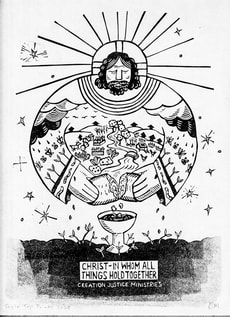
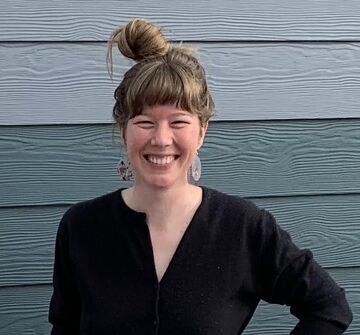
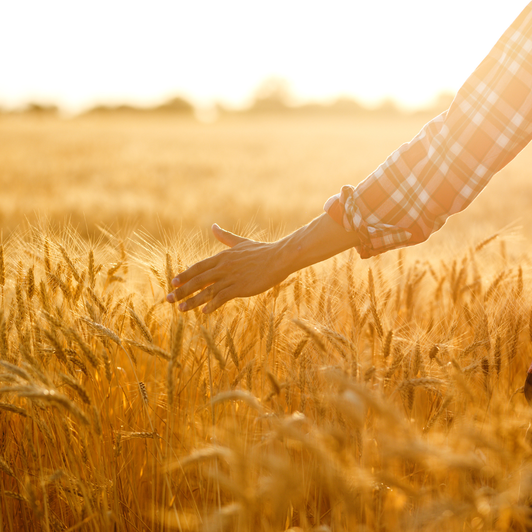
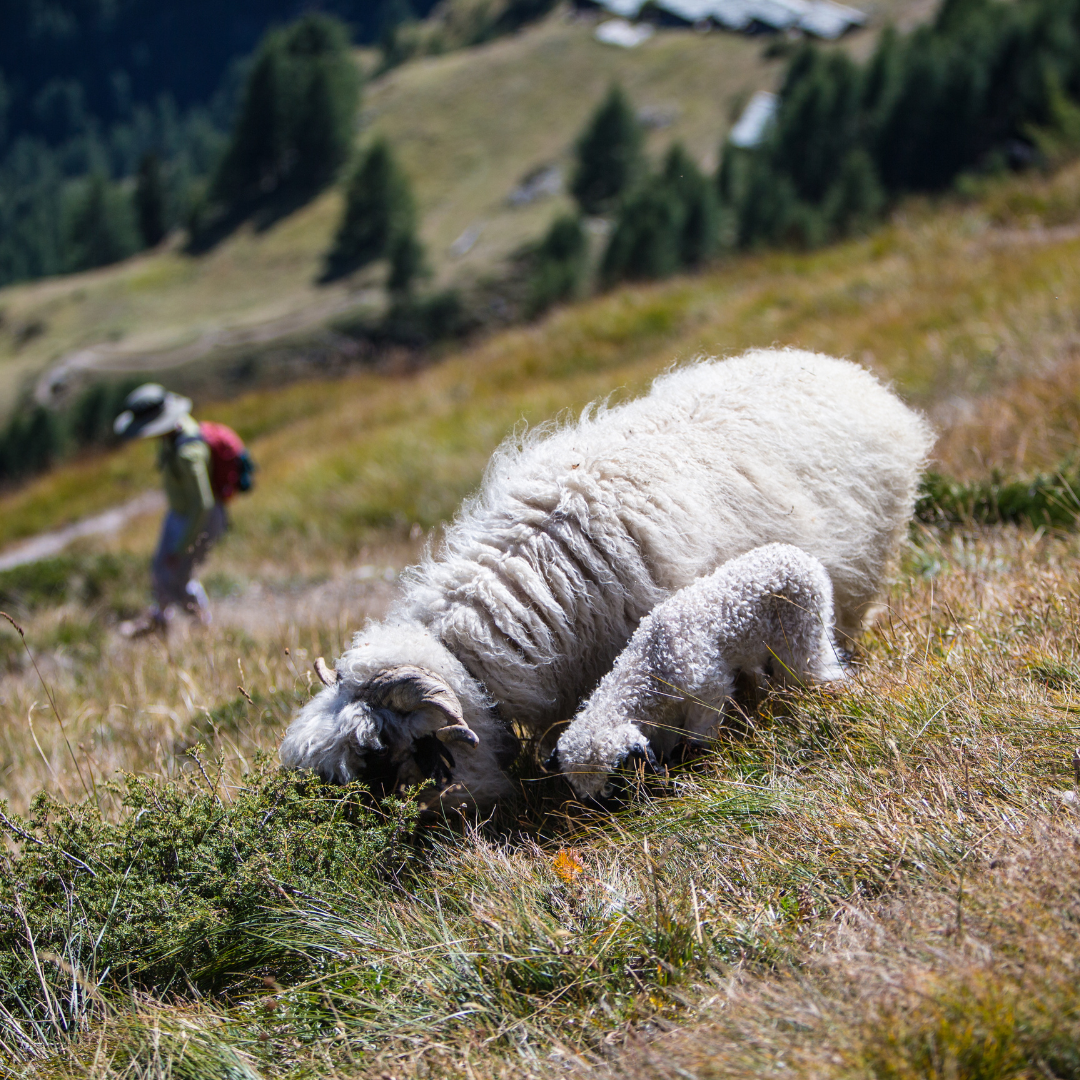

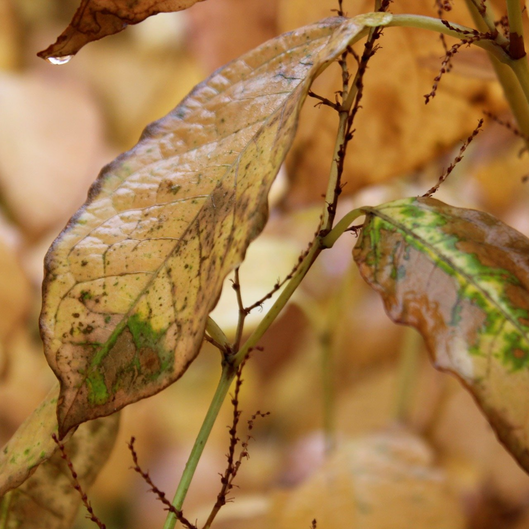


 RSS Feed
RSS Feed